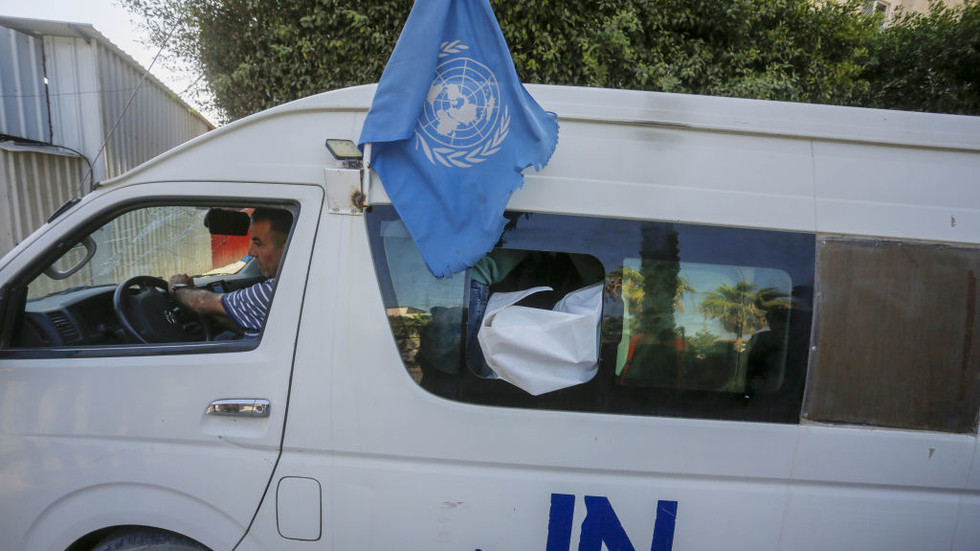The Knesset of Israel has recently passed two significant bills aimed at crippling the operations of the United Nations Relief and Works Agency for Palestine Refugees in the Near East (UNRWA). Established in 1949 to provide support for Palestinian refugees in the aftermath of the establishment of Israel and the subsequent Arab-Israeli conflict, UNRWA has faced increasing scrutiny and accusations from the Israeli government. Israeli officials contend that the agency is complicit in supporting Hamas and other militant groups, which has led to the parliamentary action. The Knesset voted overwhelmingly in favor of the bills, with a notable margin of 92 to 10, asserting that UNRWA would be barred from conducting any services or activities within Israeli-controlled territories, essentially defining it as no longer a humanitarian entity.
The justification provided for this sweeping legislation highlights a narrative that depicts UNRWA as having deviated from its original humanitarian mission, evolving into an organization perceived to foster terror and perpetuate Palestinian misery. MK Yuli Edelstein, chairman of the Foreign Affairs and Defense Committee, emphasized this viewpoint, labeling the bill as “historic” and asserting that it would dismantle one of terrorism’s legs operating under the guise of a United Nations agency. This characterization of UNRWA paints it not merely as ineffective but as an active supporter of extremist activities, citing allegations that some agency employees allegedly participated in the Hamas attacks that occurred on October 7 of the previous year. Although nine UNRWA employees were dismissed amid these allegations, another ten were cleared of involvement.
The legislative measures specifically target operations in the eastern part of Jerusalem, which Israel considers its sovereign territory, and extend beyond that scope through a second bill that nullifies the 1967 agreement permitting UNRWA’s operations in Israeli-controlled areas. With the passage of this law, Israeli government agencies are also prohibited from engaging with the UNRWA in any manner, effective within 90 days. To fill the void left by UNRWA’s operations, the Jerusalem Ministry is slated to assume responsibility for providing services to those in East Jerusalem, with intention to establish alternative educational and health frameworks. Ruling party member MK Dan Illouz assured the public that these plans would be funded independently and presented as a viable solution to replace UNRWA’s support for Palestinian refugees.
Opposition to the bills was robust, particularly from Arab Knesset members and the opposition Democrats Party, who voiced their concerns about the potential ramifications of these actions. Notably, MK Ahmad Tibi of the Hadash-Ta’al party expressed that the significant workforce of approximately 90,000 UNRWA employees plays a crucial role in service delivery to Palestinian refugees. Tibi posited that the dismantling of UNRWA should only be considered in the context of establishing an independent Palestinian state, indicating that the timing of these legislative measures could undermine the prospects for peace and stability in the region.
International reaction to Israel’s decision has been predominantly critical, with various countries—including Canada, Australia, and several European nations—expressing deep concerns over the worsening humanitarian conditions in Gaza. These nations have called on Israel to reconsider its stance, fearing that the abandonment of support for UNRWA would exacerbate an already dire situation for Palestinian refugees. Furthermore, the United States has cautioned Israel that not providing necessary humanitarian assistance could jeopardize certain aspects of its military aid relationship, which suggests financial and diplomatic consequences for tightening restrictions against humanitarian organizations like UNRWA.
Overall, these legislative actions taken by the Knesset represent a fundamental shift in the Israeli government’s approach to Palestinian refugee assistance and the role of international organizations in the region. The passage of these bills signals not only a strategic move to diminish UNRWA’s influence but also a growing sentiment within Israeli politics that aligns national security concerns with humanitarian operations in a complex and fraught geopolitical context. As the situation evolves, the implications of these laws will likely extend beyond immediate operational challenges for UNRWA, affecting the humanitarian landscape in Gaza and the broader Israeli-Palestinian relations.

